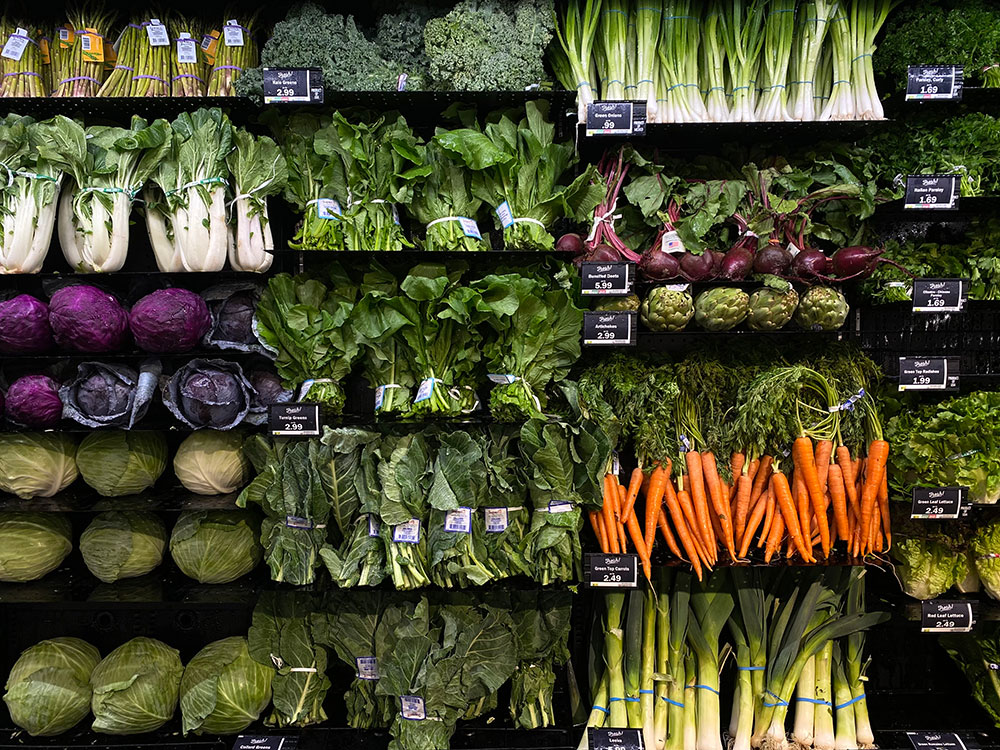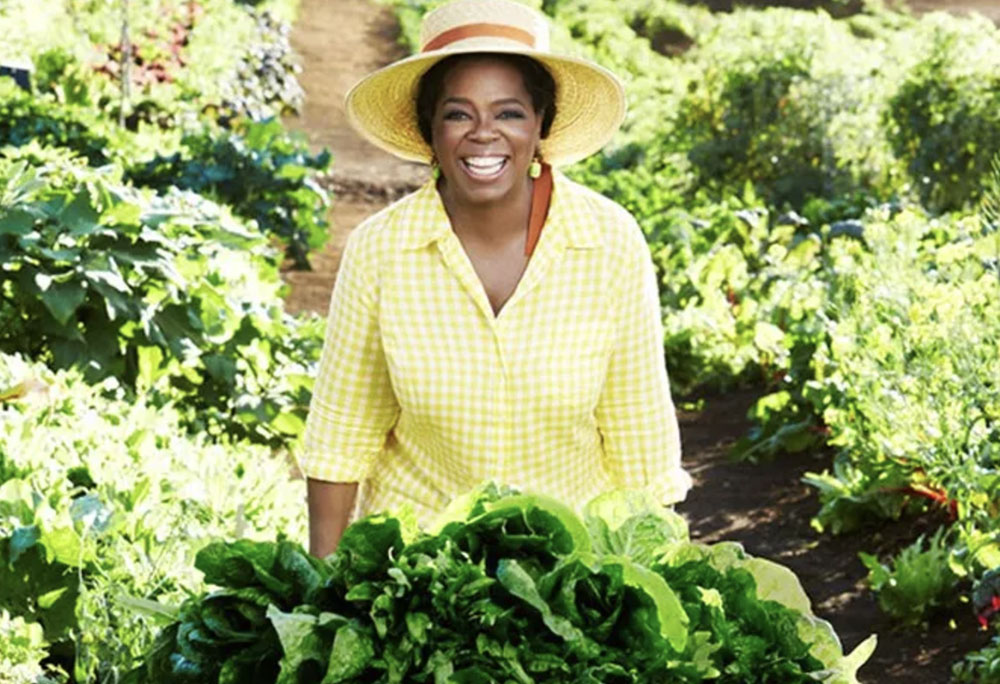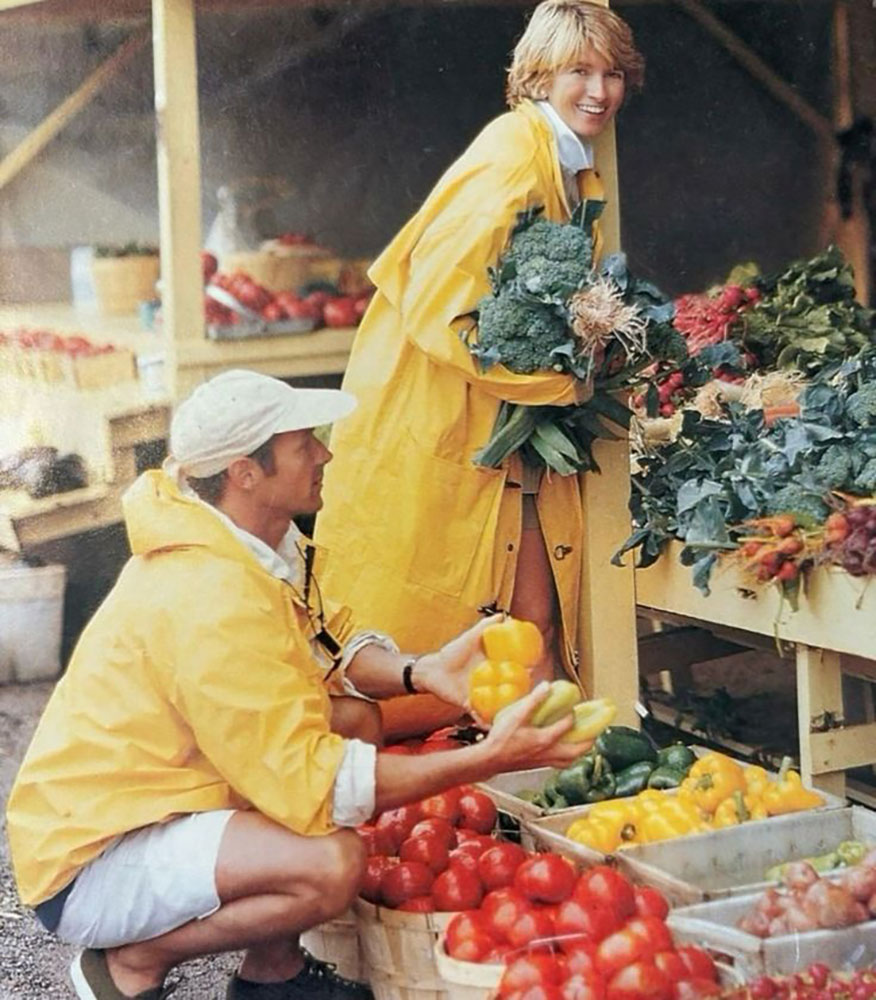
When man first walked the earth, there were plentiful gardens, succulent crops and cherry-red apples hanging ripe from every tree. Now, man walks along sterile supermarket aisles under artificial fluorescent lights, where apples sit polished and pristine, sprayed with pesticides, while the rotten ones are discarded.
But the apples aren’t the only thing that’s rotten. Our food system is failing us. Everything feels soiled.
In Aotearoa, one in five Pacific and Māori children will attend school hungry, missing meals more than four times a week. Meanwhile, the wellness elite continue to tell us that health is a choice – that a better life can be found in spirulina smoothies, $150 collagen powder and weekly hauls from Farro. Wellness, like beauty, has become the domain of the wealthy.
In 2025, it’s not about having the Gucci belt or the Louis Vuitton boutons; it’s about the zucchini, the avocado and the fresh loaf of bread. It's about butter and milk, which are no longer “basic items” but luxury items; signifiers of both status and wealth. As a friend recently admitted, “I don’t have savings – all my savings go to Farro.”
Food, the most banal, biologically vital thing on earth, has become a luxury.
As the image of food is blasted all over social media, wellness is documented as though it can be democratised. That everyone can look like this if you eat like this! Food is everywhere… Yet, it’s not. New data shows New Zealand has one of the highest rates of food poverty in the developed world.
And so, as I scroll past yet another wellness influencer preaching to me that self-improvement and a healthier life are one more workout and apple cider vinegar shot away, I can’t help but wonder: what does it mean to be “well” when everything feels broken?
Historically, food has long been a symbol of social status. However, today, humans have never been more disconnected from their food or the process by which it is sourced. Capitalism has commodified capsicums and, in doing so, stripped us away from the natural order.

“It’s normal to be disconnected if your food is very far away and you’re not seeing it,” says Sarah McFadden, manager of Kelmarna Community Farm in Auckland. “Many people come to Kelmarna because they are really disillusioned with shopping at supermarkets.”
McFadden emphasises the importance of eating seasonally, tailoring our diets to what the land can actually produce. Even carrot stalks and tops of vegetables – often discarded – can become meals (and make a great pesto!).
In everyday conversation, food idioms slip into our dialogue: “Girl, you ate!” But beneath the slang lies a sharper question: who is really eating? And by that I mean eating well?
New Zealand, celebrated worldwide for its fertile farmland and agricultural abundance, takes pride in its egalitarian ethos. Yet it ranks among the countries with the highest levels of food insecurity. Food insecurity is not just about whether there is enough food in Aotearoa, but about whānau having the resources to access healthy, affordable food.
Ensuring people have an adequate income to pay their basic bills is one way for us to ensure Aotearoa is food secure. As Dr Sally Mackay, who has a three-decade-long career in public health, stresses, “If we really want to fix food insecurity, people need to have sufficient income so they can buy the food as they choose, rather than relying on hand-outs.”
A few weeks ago, a friend took me to her local farmers’ market in Riverhead, where pumpkins sold for $1.50 and spinach for $2 a bunch. The leaves were still flecked with dirt, the produce entirely pesticide-free. I was in awe. It felt primal; I could feel my cells happily dancing inside me as I shook hands with the farmer who had grown the food I was about to eat. This kind of exchange should be ordinary, happening on every street corner. Why, then, does it feel like a privilege?

Having community gardens like Kelmarna on every corner, as common and convenient as every chain supermarket, is the solution.
Tric Malcolm, executive officer at Kore Hiakai Zero Hunger, has closely mapped out our food system over the past century. “I grew up in Horowhenua and the Manawatu, and I can no longer buy the cheese and butter I grew up with all my life – these items have been removed from our grocery shelves and replaced by own-brand commodities.
“When Coke is cheaper than milk, when we can’t afford our own butter, when fruit and veg are out of reach for those who earn the least – we must change the way we collectively eat,” says Malcolm. “Our currency is connection. Every time we allow food to become a luxury, we lose a piece of our humanity.”
For past generations, gardens weren’t just for families; they were for whole neighbourhoods. “My parents' garden wasn’t just meant to feed us, it was meant to feed everyone who came to our table,” recalls Malcolm, now in her 50s. “There was an attitude of collectiveness.”
Now we reach for UberEats, eating from our own separate plastic containers, rather than asking our friends to cook together. Food, like many other things, has become increasingly individualised.
“The antidote to individualism is community. And having more connections with the people that live near you, and having more community spaces where we can connect. Kelmarna serves as a community space where volunteers can gather and share kai together,” McFadden preaches.
All New Zealanders should have access to the food they need for their health and wellbeing at all times. Food plays a pivotal role in shaping wellbeing and health. It not only provides essential nourishment but also fosters connections to culture, communities, and the environment.
Food has always been our universal language. It’s how we enter a home, how we understand culture. Everyone needs to eat, not just the elite.
“It's about how do we connect up again – to each other, to our humanity and to the world around us so that we can value each other and all be prosperous and thrive!” says Malcolm.
The solution is to put our hands back in the soil, befriend our neighbours and return to communal ways of eating. Maybe it’s also about recognising luxuries for what they are. Do you really need that $8 kombucha, or do you need a shared potluck with friends?
I leave you with a few questions to take home: When was the last time you baked extra and dropped it off at a friend’s place? Cooked and invited someone over? Shared your kai?
Food sovereignty is not an individual issue; it is a collective one. Food is not a luxury; it is a basic necessity of human life.




